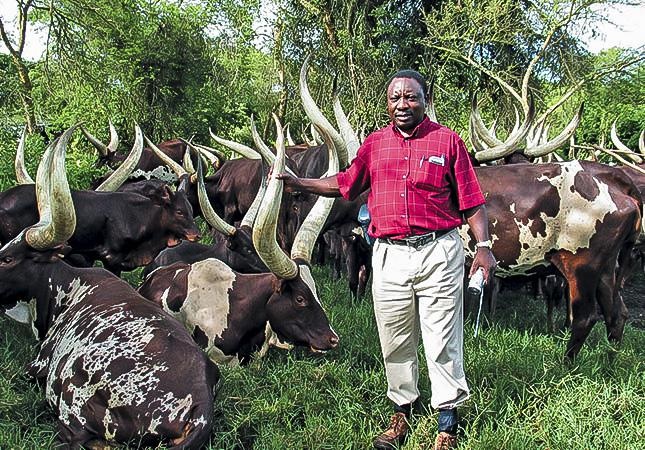
“Buffalo man” is a moniker for Cyril Ramaphosa that is likely to stick, not only because of his investments in rare game, but because his maiden January 8 statement set the stage for a buffalo market being a feature of his administration.
Market sentiment: Is it a bull? Is it a bear? It’s a buffalo
Outlining market conditions in 2016, a Merrill Lynch newsletter stated that “a buffalo market tends to roam over a long period of time, is herd-like and rather heavy, and can run the other way when worrisome obstacles get in the way”.
As the SA Institute of Race Relations (IRR) has long predicted, Ramaphosa is hamstrung by the need to ensure unity, which will result in confused policy making and confused investor sentiment. It will likely take some time for the market to decide whether it’s a bull or a bear. In a market where analysts are grasping at every signal in a desperate bid to understand what it is going on, there is hypersensitivity to headline risk; any number of events is likely to set the market charging in any direction. Many uncertainties remain, such as whether the ANC is more committed to unity than to rooting out corruption; there are questions about its commitment to fiscal prudence relative to its growing list of redistributive commitments; and whether investors are friend or foe.
The ANC will work with business, whether it likes it or not
Ramaphosa has not changed how the ANC engages with the private sector: to look like the innocent flower, but be the serpent under it. On the one hand, the ANC wishes to open its arms to business and to investment; yet on the other it doles out threats. Ramaphosa promised to “work together”, but, in the same breath, to change the structure of ownership in the economy “bayathanda abathandi” (whether “they” like it or not.)
It is not clear if the ANC, even under Ramaphosa, knows how to be different. It is increasingly clear that a business-friendly ANC would need to commit to a different brand or value offer to its voters. At the moment, private sector hostility is intertwined with ANC self-preservation. The ANC sells itself as the protector of workers, of the poor, of the people. If you sell yourself as a protector, then the threat must be maintained. In this case the enemy is the employer, the owners of capital, the wealthy, the elite. The ANC sees itself, bizarrely, as being engaged in a battle for the public’s trust with the private sector. Ramaphosa was sure to drive home the point that the private sector is no better, as it, too, engages in corrupt activity. In many other countries, parties will deflect their wrongdoings by highlighting opposition party wrongs, reflecting who their opponents are in the battle for public trust. Ultimately, if the ANC wants to work collaboratively with business, it will need to unlearn decades of thinking that business is the enemy.
Zuma’s removal no longer a useful barometer for reading the ANC
If 2018 is the year of unity and renewal, there is no issue more divisive than whether Jacob Zuma stays or goes. But it is less interesting now whether Zuma sees through his presidency or not. Zuma’s removal no longer signals as much as it would have had it happened months, or a year, ago.
Then, it might have reflected that the ideological balance of forces was weighted towards the moderates and against the radicals, or, if not that, then at least that there was a serious, principled opposition to corruption and a concern to root it out. It is too late now for principle; that ship has sailed. What remains now is pragmatism and self-preservation; what can the ANC better withstand – going into the national election with Zuma or going into the election without Zuma, but potentially as a splintered party? These concerns speak squarely to the ANC’s own internal universe and say nothing about what one can expect from the ANC in relation to its external universe as it relates to its policy approach.
Gwen Ngwenya is an economist and chief operations officer at the SA Institute of Race Relations – a liberal think-tank that promotes economic and political freedom




 Publications
Publications
 Partners
Partners








